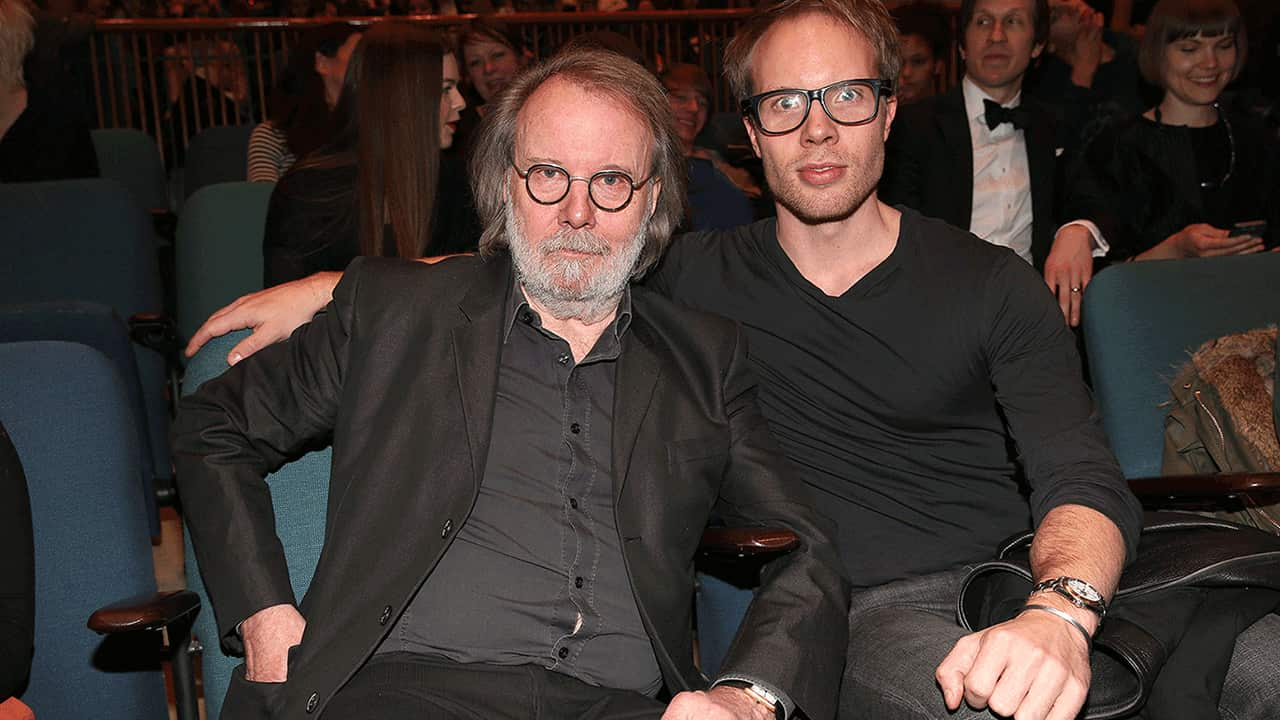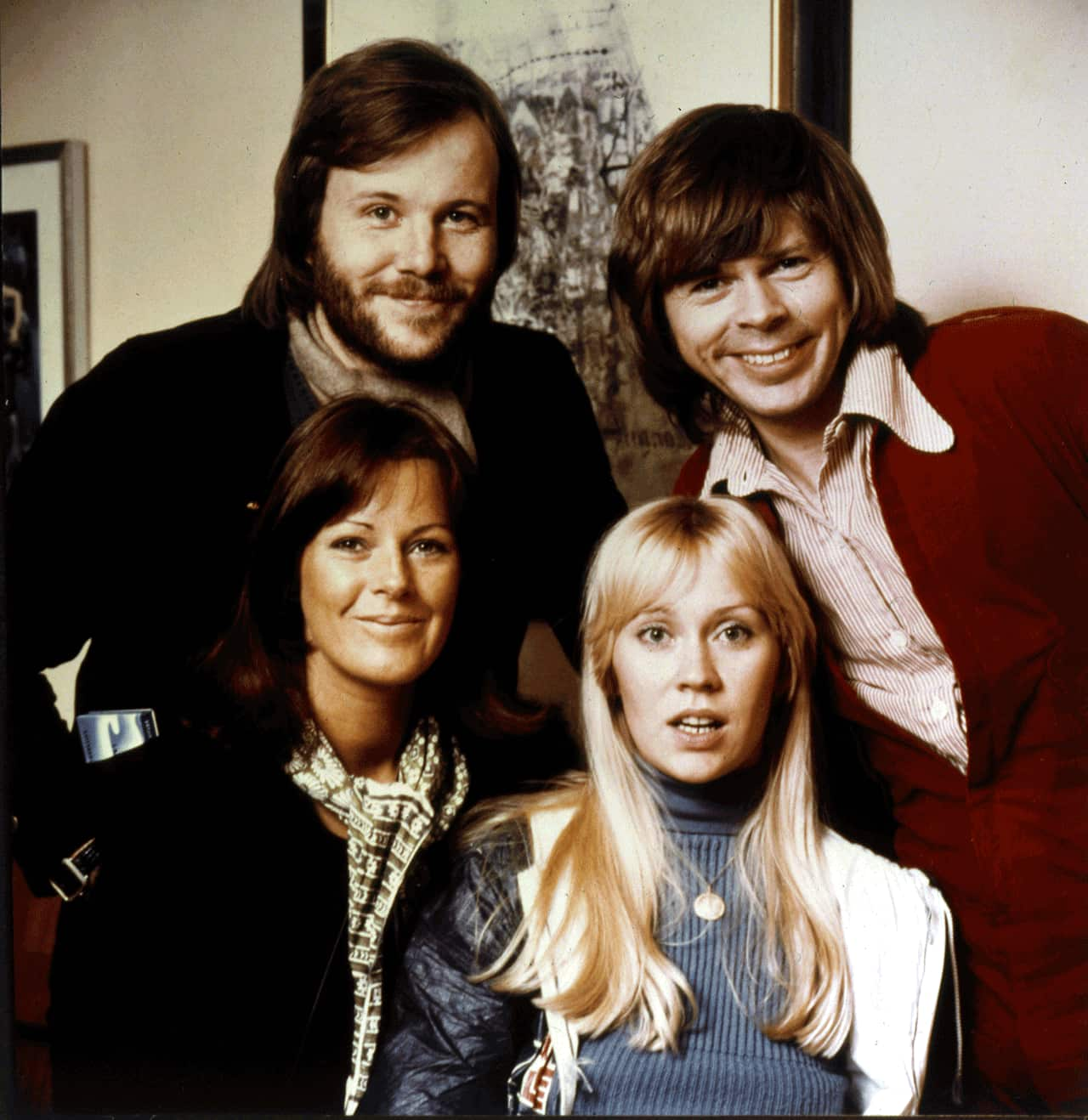In 2005 the public voted ABBA’s 1974 Eurovision entry Waterloo as their favourite Eurovision song winner ever and the long disbanded group, which existed from 1972 till 1982, has never ceased to amaze in the subsequent years. Mamma Mia! the musical, built around 24 ABBA songs, went on to become a 2008 cinematic blockbuster, the most successful movie musical of all time. The band famously , saying pop music is a young person’s game. (Also, the deal would have come with strings attached, such as committing them to 250 live performances).
Now, after 360 million album and singles sales, they give credit where it is due. And together with Eurovision a lot of the credit goes to us ABBA-loving Aussies.
Whether Guy Sebastian can take the contest by storm remains to be seen, but hey, we at least are in there with a chance.
The fact was not lost on ABBA’s Benny Andersson in our recent Berlin Festival interview.
“You’re in all of a sudden I just read,” he enthuses offering support. The well-preserved, determinedly down-to-earth 68 year-old, who seems leaner than in his early years, clearly loves Australians—and our senses of humour—and hearing the words : “G’day”.
“I hear where you are from,” he exclaims, emitting a big grin when we first met.
I tell him how Swedish colleagues say he’s the more intellectual of the two ABBA men.
“Oh come on, none of us are!” he responds definitively.
At first in our interview this self-effacing prodigious talent, who together with Björn Ulvaeus had painstakingly written and arranged ABBA’s anthems, resists talking too much about ABBA and Eurovision as he is here to promote a Swedish-language teen fantasy movie, The Circle, which he has personally financed and produced together with his 33 year-old son, Ludvig. (Ludvig’s mother is Andersson’s second and current wife, Swedish TV presenter Mona Nörklit, whom he married in 1981 just after his divorce from fellow ABBA member Anni-Frid Lyngstad.) Yet once Andersson hears the Australian twang I can't stop him. Of course he already knows about Countdown’s 40th anniversary as it came hot on the heels of ABBA’s 40th anniversary of their Eurovision win, which was widely celebrated with a book, an exhibition and a Wembley concert DVD compilation culled from six of ABBA’s 1979 Wembley shows and put together by Ludvig, who is also a musician.
Of course he already knows about Countdown’s 40th anniversary as it came hot on the heels of ABBA’s 40th anniversary of their Eurovision win, which was widely celebrated with a book, an exhibition and a Wembley concert DVD compilation culled from six of ABBA’s 1979 Wembley shows and put together by Ludvig, who is also a musician.

Benny Andersson and son Ludvig. Source: AAP
“Countdown was essential to us,” Andersson admits. “That's when it really started to happen. After we won the Eurovision Song Contest and had a big hit with Waterloo all over the world, then nothing happened, like often is the way with Eurovision Song Contest contenders. We worked in England and they said, ‘Well not to worry,” he grumbles at the memory. “So from sending us big limousines in the Waterloo period, the cars got smaller and smaller and we had a Volkswagen bus by the end! “But then we met Lasse Hallström, who made three videos for 'I Do, I Do, I Do', 'SOS' and 'Mamma Mia' for K25,000 [around $4000] which is not much for three videos and they were sent around the world for us, so we weren’t having to travel that much. [ABBA’s Agnetha Fältskog had young children with Ulvaeus and also had a fear of flying.] Then Countdown started to show the videos and it took off. When it started in Australia the different labels around the world realised they were maybe missing something and we started to work again.”
“But then we met Lasse Hallström, who made three videos for 'I Do, I Do, I Do', 'SOS' and 'Mamma Mia' for K25,000 [around $4000] which is not much for three videos and they were sent around the world for us, so we weren’t having to travel that much. [ABBA’s Agnetha Fältskog had young children with Ulvaeus and also had a fear of flying.] Then Countdown started to show the videos and it took off. When it started in Australia the different labels around the world realised they were maybe missing something and we started to work again.”

Source: AAP
The limousines got bigger?
“Yes they did!”
Anderson recalls that when ABBA came to tour Australia in 1977, the biggest surprise was the merchandising.
“There were ABBA soaps, ABBA towels, ABBA pillows, ABBA everything. There was soap everywhere! I don't know how that happened because we never agreed to anything commercial.”
You might also like
- for tips and insider guides for the best ways to experience this year's Eurovision
- online at SBS On Demand
- season on SBS ONE
- s in musicals
Of course in the ensuing decades 70’s music, even Saturday Night Fever’s John Travolta, went widely out of fashion. It was the Australian 1994 movie Muriel’s Wedding that allowed ABBA’s lycra-infected pop music to make an international comeback. Then the British duo Erasure recorded a compilation of ABBA songs, Abba-esque, which became a hit in England, followed quickly by Mamma Mia! on stage and on screen.
“So it’s been working all around our music,” Andersson muses, “and we haven’t done anything. We just sit back and enjoy it. It’s quite fantastic really.”
ABBA has of course been Bjorn Again by that internationally successful Australian group. “They’re still working and have been together three times as long as we were,” Anderson notes.
Have they met? “Yes, but a long time ago.”
More recently he has been in the company of another more famous Australian, Baz Luhrmann, who was visiting Stockholm while making an ad for an Australian version of Absolut vodka and was looking at using ABBA songs for a show. At this point Ludvig interjects, keen to provide another Australian anecdote—or should we call it a confession?
“The reason I do anything in life is because when I was 10 years old I went to see and at the end of that movie there’s a scene where the main male character comes gliding on his knees wearing a golden jacket and that scene is the foundation of my entire life. Two years ago we met Baz and we talked about some other things, and I told him about this. It ended up with him promising me that when I come to visit Sydney I will get to come to his office and I will get to put on that golden jacket. So if he’s reading this, I am coming!”
Benny : “Hear that Baz!”
So what is it that makes Australians love ABBA so much?
Benny: “I don't know I actually. I don't know but I’m very grateful. We all are because if that hadn’t happened we would have struggled much more. We thought we were good and we entered the Eurovision Song Contest because that’s the only way to get anywhere when you’re a Swedish band nobody cares about you. But if you win that, people might pay attention, which they did. But then they think that's what you are. So it was really not doing us a favour in a way, though Australia helped us and we are forever grateful to Australia.”
Forever grateful to the Eurovision Song Contest as well,which Swedish DJ and recording artist, Avicii, adapted as the anthem for the 2013 Eurovision Song Contest in Malmö, Sweden.
One imagines the boys, who continue to carry on the ABBA tradition, will be involved in Eurovision in the years to come as well.
